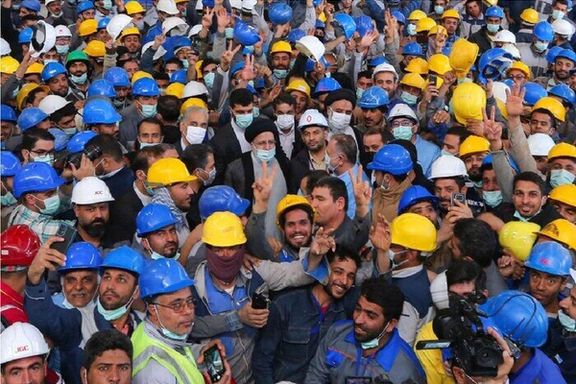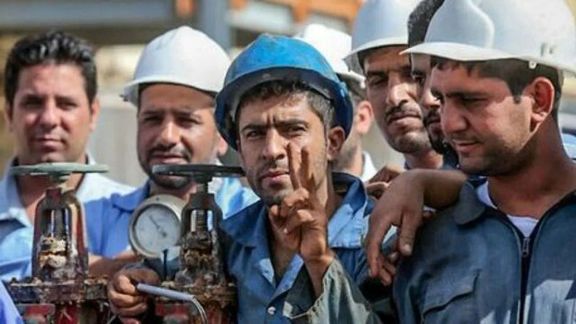Iran's Government Delays Wage Negotiations With Workers

With only 17 days remaining in the current Iranian year, the country’s Supreme Labor Council has yet to convene a session to establish next year's workers' wages.

With only 17 days remaining in the current Iranian year, the country’s Supreme Labor Council has yet to convene a session to establish next year's workers' wages.
Within Iran's state-controlled economy, the government sets wages for public sector workers, including thousands of companies and factories, which also determines salaries of ordinary workers in the private sector. According to the law, representatives of the government, official labor unions and employers every year negotiate to set the minimum wage. However, the government increasingly ignores the unions and pushed through unrealistically low wages amid 40-percent annual inflation.
Davood Manzour, the head of Planning and Budget Organization (PBO), said on Saturday that discussions are still underway, with the new levels contingent on anticipated inflation.
He also expressed optimism about negotiations between labor unions and the government, though in recent months, unions have come under increasing pressure from the government amid labor protests, with tightening control over unions to suppress unrest.
This comes as Saeed Fatahi, a union leader, advocated for incorporating a 42 percent inflation rate and a 250 million rial ($400) monthly livelihood basket as benchmarks for wage deliberations. Currently, workers receive less than half of that amount, which is inadequate for food and housing.
Fatahi emphasized the need for labor representatives to hold firm during negotiations, saying any new deal should be within the terms of Article 41 of the Labor Law which states workers' wages, salaries, benefits, and bonuses must be calculated based on the country's inflation rate.

Criticism was leveled at the Labor Ministry for its handling of past wage negotiations and the dismissal of labor representatives, perceived as an attempt to suppress wage growth and disregard labor laws. As the economic crisis deepens, the government fears the stirring anger fueling ever increasing protests.
Meanwhile, Etemad newspaper on Saturday reported a staggering increase in food prices, with canned fish soaring by 113 percent and red meat by 100 percent in February compared to the previous year.
Economic constraints, such as sanctions and fluctuating oil prices, limit the government's ability to finance wage hikes without risking further economic instability. Additionally, a history of labor unrest and political dissent adds to the government's apprehension, as raising wages could be seen as a concession to pressure groups demanding broader reforms.
Moreover, entrenched interests within the government and business community may resist wage increases to protect profit margins and maintain the status quo. Despite growing calls for reform and social justice, the government's unwillingness to address the wage issue underscores the challenges of balancing economic stability, political considerations, and social justice in Iran's complex socio-economic landscape.
Overall, the financially strained government is procrastinating and advocating for just a 20-percent wage hike, as it appears incapable of raising the minimum wage sufficiently to cover living expenses.
The wage negotiations continue against a backdrop of the Iranian government funding billions of dollars' worth of support to its militant proxies in the region.
From Lebanon to Yemen, Palestine to Syria and Iraq, from training to weapons, Iran continues to be the region's largest state sponsor of terror, according to the latest US annual terrorism report.
Also, recently leaked documents revealed parliamentarians' monthly salaries range from 1.7 to 2.7 billion rials, equivalent to $3,200 to $5,000.
Meanwhile, while Iranian workers await a salary increase of 20 percent amid an annual inflation rate of around 50 percent, the new minimum monthly wage has been set at 115 million Iranian rials or less than $200.
Rights groups such as Human Rights Watch have long noted the erosion of workers rights in Iran. Since 2018, Iranian workers have been facing ever more challenging economic circumstances amid US sanctions. Additionally, Human Rights Activists of Iran (HRANA) have noted the attempts to silence workers' unions amid declining wages, unpaid salaries and dangerous working conditions.